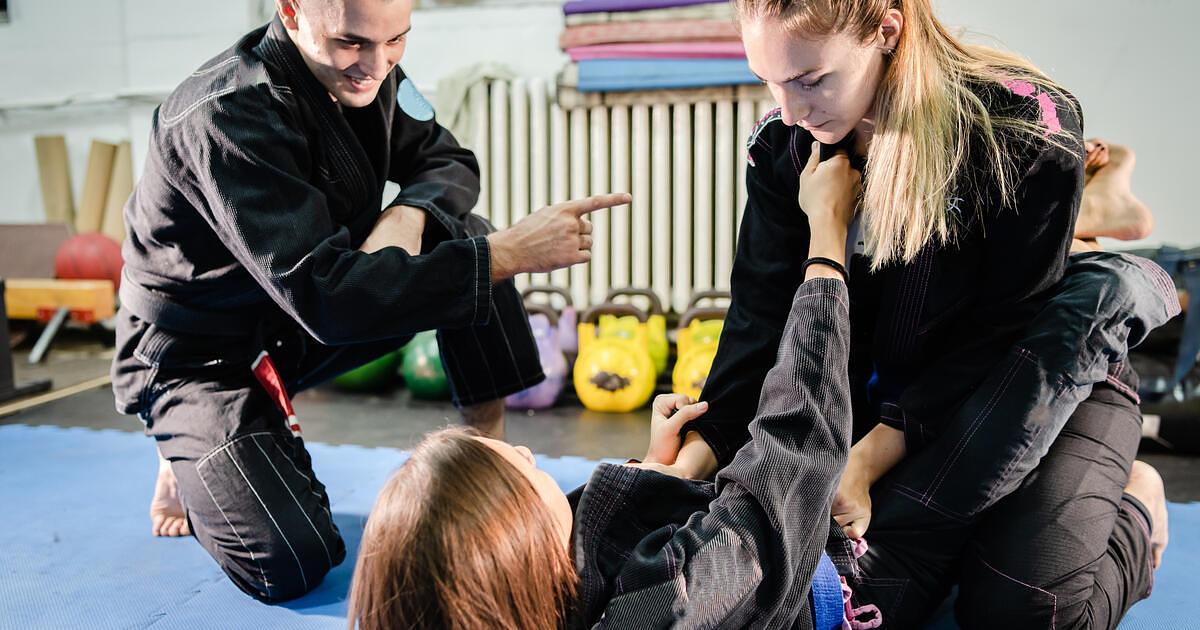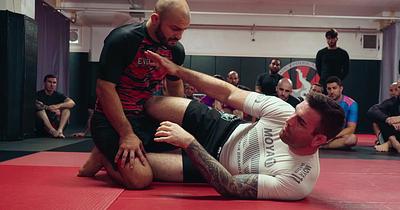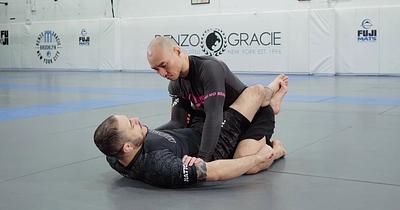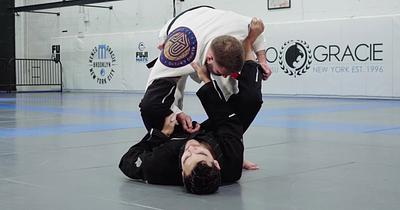BJJ Etiquette 101: How to Properly Address Your Instructor
by Team Digitsu
Updated: April 03, 2024

When it comes to martial arts, many different terms and titles are used to show respect for the instructor and their expertise. In Brazilian Jiu-Jitsu (BJJ), several terms are commonly used to address the instructor, including Professor, Coach, Sensei, Master, or even just using their first name. These titles are often used to show respect for the instructor's rank and experience in the art, as well as to reflect the culture and lineage of the gym or academy.
However, the use of these titles can vary widely depending on the specific gym or academy. Some schools may have a more formal structure, using titles like Professor and Coach more formally, while others may be more relaxed and allow students to use more casual terms like Sensei or simply the instructor's first name.
It is essential to understand the proper protocol for addressing a BJJ instructor, as showing respect and etiquette is a crucial aspect of the martial art. In this article, we will explore the various titles used for BJJ instructors, the protocols for addressing them, and the role and responsibilities of a BJJ instructor in teaching and guiding students.
"Professor" in BJJ
At many BJJ gyms, the proper term for an instructor is "Professor." This term is used to show respect for the instructor's rank and experience in the art and reflect the Brazilian origins of BJJ. The term "Professor" is used formally at some gyms and academies and is typically reserved for black belt instructors. This is generally the most common title for the teacher at BJJ gyms, possibly due to BJJ's origins in Brazil, where professor means teacher in Portuguese.
At the AOJ academy, for example, the term "Professor" is used formally for all black belt instructors. This reflects the traditional structure of BJJ academies in Brazil, where the term "Professor" shows respect for the instructor's rank and expertise.
It is important to note that the term "Professor" is specific to BJJ and is not used in the same way in other martial arts. In other arts, such as karate or taekwondo, the term "Sensei" or "Master" may be used to address the instructor. However, in BJJ, "Professor" is generally the most preferred and respectful way to address a typical black belt instructor. Although this varies significantly across different gyms and their respective culture.
"Coach" in BJJ
In BJJ, the term "Coach" is often used to show respect for the instructor and their expertise in the art. The term "Coach" is used formally at some gyms and academies to refer to instructors who are not black belts, such as brown belt instructors.
At the AOJ academy, for example, the term "Coach" is used formally for instructors who are not black belts. This reflects the traditional structure of BJJ academies, where the term "Professor" is reserved for black belt instructors and the term "Coach" is used for non-black belt instructors.
"Master" in BJJ
The term "Master" is typically used to show respect for the most experienced instructors, often red belts of an older age. The term "Master" is often used to refer to instructors who have dedicated their lives to the study and practice of BJJ and have achieved a high level of expertise and knowledge in the art.
For example, Kioto Brazilian Jiu Jitsu students use the term "Master" to refer to the school's founder, a red belt under Helio Gracie, Master Francisco Mansor. This reflects the traditional structure of BJJ academies, where the term "Master" is reserved for the most experienced and highly respected instructors.
"Sensei" in BJJ
Some students choose to address their instructor as "Sensei." This term is commonly used in other martial arts, such as karate or taekwondo, to show respect for the instructor's rank and expertise.
While the term "Sensei" is less common as a formal title for a BJJ instructor, it is not uncommon for students to use it informally to show respect for their instructor. It is worth noting that the term "Sensei" is not specific to BJJ and is commonly used in other martial arts to refer to an instructor or teacher.
Referring to Your BJJ Instructor by Their First Name
It is common for students to refer to their instructor by their first name rather than using a formal title like "Professor," "Coach," or "Master." BJJ is generally less formal than traditional martial arts and emphasizes a relaxed and supportive training environment.
It is not uncommon for students to simply use their instructor's first name, especially in more informal or relaxed settings. This may be especially true in smaller or more community-oriented gyms, where students and instructors have a closer relationship.
It is worth noting that the use of formal titles like "Professor" or "Master" is not necessarily discouraged in BJJ; instead, it is less common than in other martial arts. Some students may use these titles to show respect for their instructor, while others may prefer casual terms like "Coach" or their first name.
Conclusion
Various titles can be used to address the instructor, such as Professor, Coach, Master, Sensei, or even the instructor's first name. These titles are used to show respect for the instructor and their rank and experience in the art, and may vary depending on the specific gym or academy.
The most common titles in BJJ are "Professor" and "Coach," with "Professor" typically reserved for black belt instructors and "Coach" used for non-black belt instructors. The term "Master" is also sometimes used to refer to the most experienced instructors, who are often red belts of an older age. The term "Sensei" is less common as a formal title in BJJ but may be used informally by some students as a sign of respect.
It is important to note that BJJ is generally less formal than other traditional martial arts, and it is common for students to refer to their instructor by their first name. However, it is always best to check with the instructor or the gym's policies to determine the preferred way to address them. Overall, using the proper term to address a BJJ instructor is a key part of showing respect and proper etiquette in the martial art.


